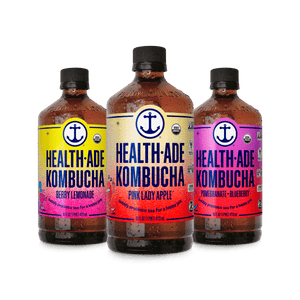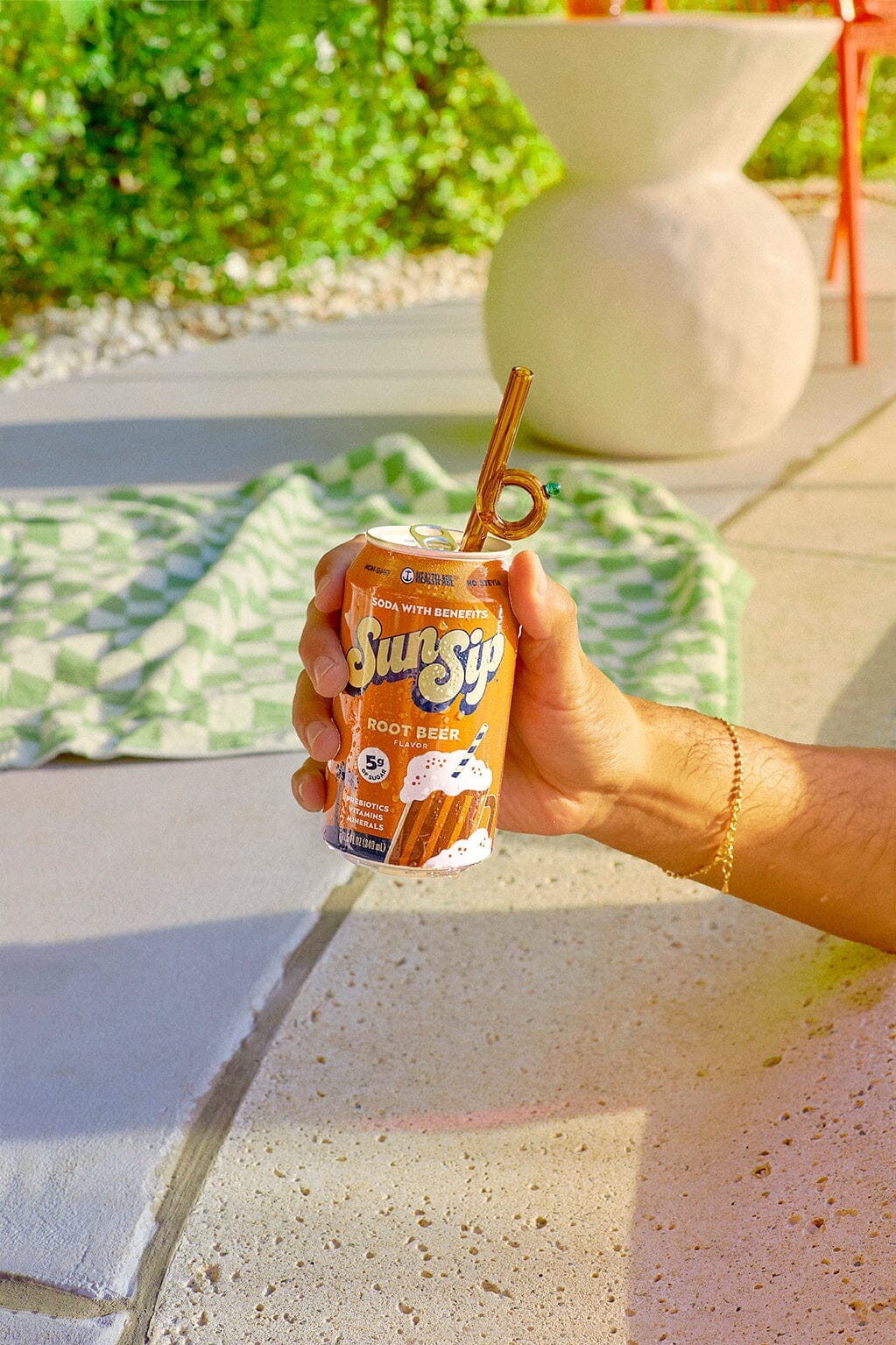
Kombucha | 12 Pack
Fan Favorite Variety Pack
One-time Purchase
49.95

Copied URL to clipboard!
At this point, you may have realized that one of SunSip’s standout qualities is that it has ≤6g of total sugar. But less sugar does not mean less flavor! In fact, we’ve found a perfect balance of bubbles, and crafted classic, craveable flavors in each can. How? Meet monk fruit.
Monk fruit is small, round fruit native to Southern China. While it has been used in eastern medicine for centuries as a cold and digestive aid, its use as a sweetener in the U.S. is relatively new.
Monk fruit sweeteners are produced by removing the skin and seeds from the fruit, crushing the fruit, and extracting its sweet portions into both liquid and powder forms. This sweetener falls into the category of plant-derived, non-nutritive sweeteners. This means that it passes through the GI tract undigested, so it doesn’t provide any calories. Because of this, it also has no impact on blood sugar!
Like most non-nutritive sweeteners, monk fruit is much sweeter than regular table sugar. 150-200x sweeter, to be exact! Because of this, it’s only needed in very small amounts to equal the level of sweetness provided by sugar. Monk fruit is most often used to sweeten a variety of beverages, protein bars and powders, candies, and some condiments.
Several reasons! First, we want to empower you to make choices that feel good in your body. For some people, especially those with diabetes or any other insulin-resistant health conditions, that might mean being able to sip on something sweet while being mindful of added sugar and its impact on blood glucose levels. It’s important to understand that sugar isn’t inherently evil (as diet culture would lead us to believe). After all, sugar is a source of energy for your body and is found naturally in all carbohydrate containing foods. It can be valuable, though, to know where added sugar comes from and understand how it feels in your body and impacts your energy levels. If you’d like to read more about sugar, check out this blog.
We also like monk fruit because preliminary research suggests that monk fruit mogrosides (the compounds that make it sweet) may act as prebiotics! A test tube study found that gut bacteria could break down these mogrosides into compounds that have antioxidant properties and promote the growth of beneficial bacteria. More research in humans is needed to confirm this potential for gut-health promoting properties, but we’re excited to see where this is headed (1,2)!
Yes! Monk fruit has received the “generally recognized as safe” (GRAS) designation from the U.S. Food and Drug Administration and it also has no reported side effects. As a dietitian, I recommend monk fruit and foods/beverages containing monk fruit as great options for anyone looking to lower their intake of added sugars.
Another reason why we’re fans of monk fruit is because it’s different than what is used to sweeten most other prebiotic sodas on the market: stevia.
Stevia and monk fruit are both plant-derived, non-nutritive sweeteners. Whole leaf or crude stevia extracts, despite being used for centuries as a natural sweetener, are not considered safe as a food additive by the FDA. The more refined stevia products that you’ll find on the shelves at your local grocery store, however, have received the GRAS designation.
Some individuals report negative GI side effects with stevia consumption, including increased gas, bloating, and nausea. These side effects do tend to vary from person to person, but have not been noted in any of the existing research on monk fruit! Monk fruit and stevia also have slightly different flavor profiles and levels of sweetness—monk fruit is about 150-200x sweeter than sugar, whereas stevia is about 200-300x sweeter than sugar.
At the end of the day, deciding which non-nutritive sweetener to use mostly boils down to taste preferences, accessibility, and how you feel after consuming each. We selected monk fruit as an ingredient in each can of SunSip because it has no known negative side effects, it offers potential gut health benefits, and it doesn’t have the funky aftertaste that often comes along with stevia.
Here’s to learning new things and finding feel-good ways to sweeten your days. And if you’d like to test out the taste of monk fruit for yourself, click here to explore all of SunSip’s flavors!
Sources: